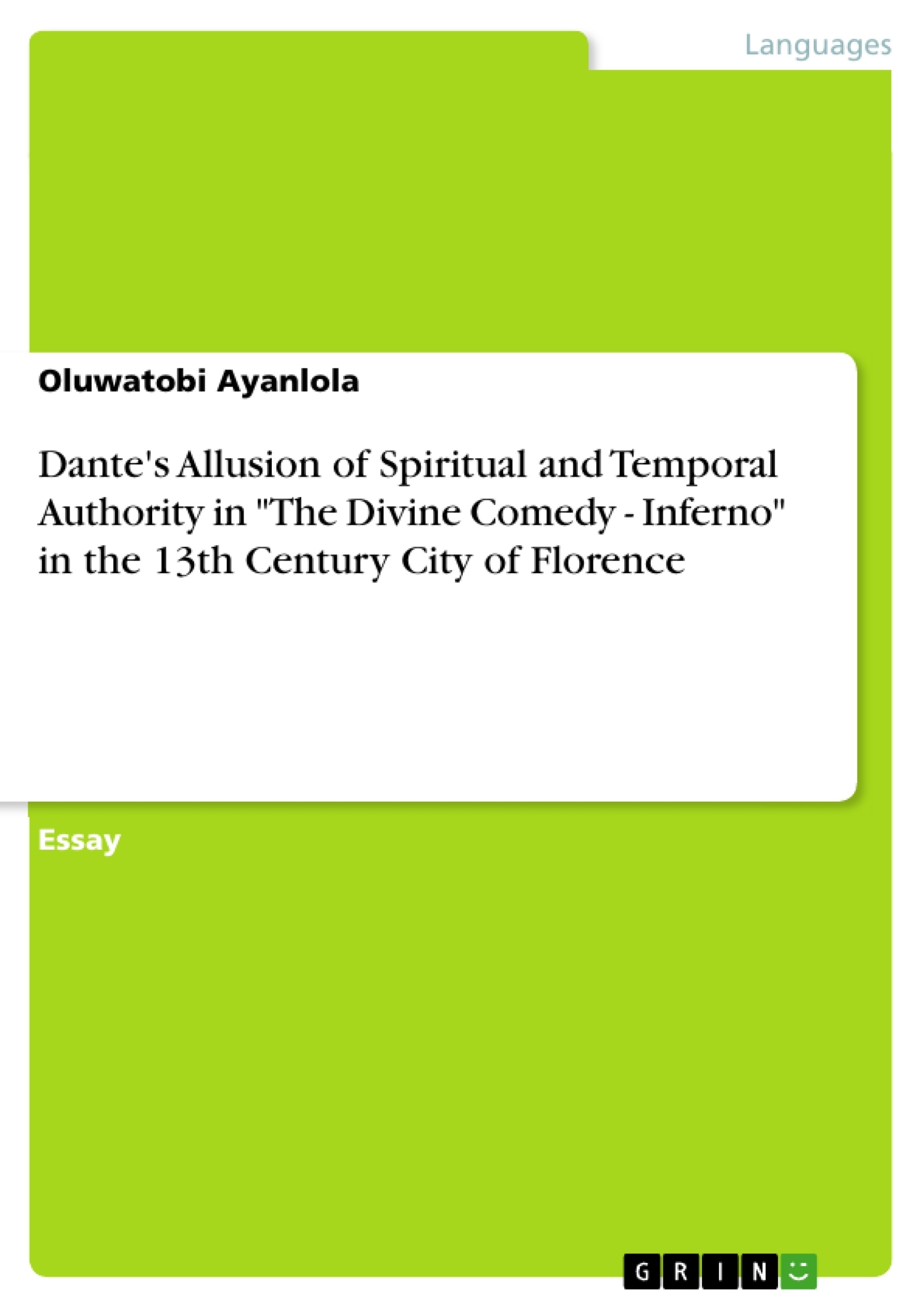The late 1300s in Florence were a scandalous period for the Roman Catholic Church and the Holy Roman Empire (HRE). The imaginative illustrations of the Nine Circles of Hell contribute to a more vivid depiction of this. Dante's rich imaginative concept can be interpreted in this study as a harsh rebuke of social ills caused by the power struggle between the HRE and the Church during this period. This epic considers the socio-political and moral circumstances of this spectacular time period and interprets "The Divine Comedy: Inferno" as a classical satire. This medieval poem is a challenge to the author's political and religious antagonists, as well as the papacy's ethical positions. The study describes the strict theological values and doctrines to which the Italian poet Dante Alighieri strictly adhered during his lifetime. As a result, it should come as no surprise that the text presents a moral argument for readers to evaluate for themselves. This is proper, as Dante indirectly justifies his characters in the Inferno from a moral standpoint as well. He does this by alluding to historical events of the 13th century, as do we. He simultaneously justified each allusion based on the nature of their sins. At the end of this study, it is clear that social reform is the central concept.
Inhaltsverzeichnis (Table of Contents)
- Abstract
- Introduction
- Religious Allusions
- Philosophical Allusions
- Political Allusions
- Conclusion
Zielsetzung und Themenschwerpunkte (Objectives and Key Themes)
This study aims to interpret Dante's "The Divine Comedy: Inferno" as a classical satire that critiques the social ills caused by the power struggle between the Holy Roman Empire and the Papacy in 13th-century Florence. It explores the rich imagery of the Nine Circles of Hell as a reflection of Dante's own theological values and his critique of the political and religious authorities of his time.
- The power struggle between the Holy Roman Empire and the Papacy in 13th-century Florence
- The use of religious, philosophical, and political allusions in Dante's "Inferno"
- The impact of Dante's own philosophical beliefs, particularly Aristotelianism, on the text
- The exploration of morality, sin, and the afterlife in Dante's depiction of hell
- The significance of Dante's exile from Florence in shaping his critique of the Papacy
Zusammenfassung der Kapitel (Chapter Summaries)
The study begins by providing an overview of the historical context of 13th-century Florence, highlighting the political and religious conflicts that influenced Dante's work. It then delves into the various allusions employed by Dante, exploring their religious, philosophical, and political significance. The study focuses on how these allusions serve to criticize the corruption within the Papacy and the Holy Roman Empire. The significance of Dante's own philosophical beliefs, particularly Aristotelianism, is also examined, as it informs his depiction of hell and the concept of the soul.
Schlüsselwörter (Keywords)
Inferno, 13th Century Florence, Roman Empire, Papacy, Papal States, Guelphs and Ghibellines, Philosophy, Aristotelianism, Religious Allusions, Political Allusions, Social Ills, Morality, Sin, Afterlife, Dante Alighieri
- Quote paper
- Oluwatobi Ayanlola (Author), 2022, Dante's Allusion of Spiritual and Temporal Authority in "The Divine Comedy - Inferno" in the 13th Century City of Florence, Munich, GRIN Verlag, https://www.hausarbeiten.de/document/1314728


